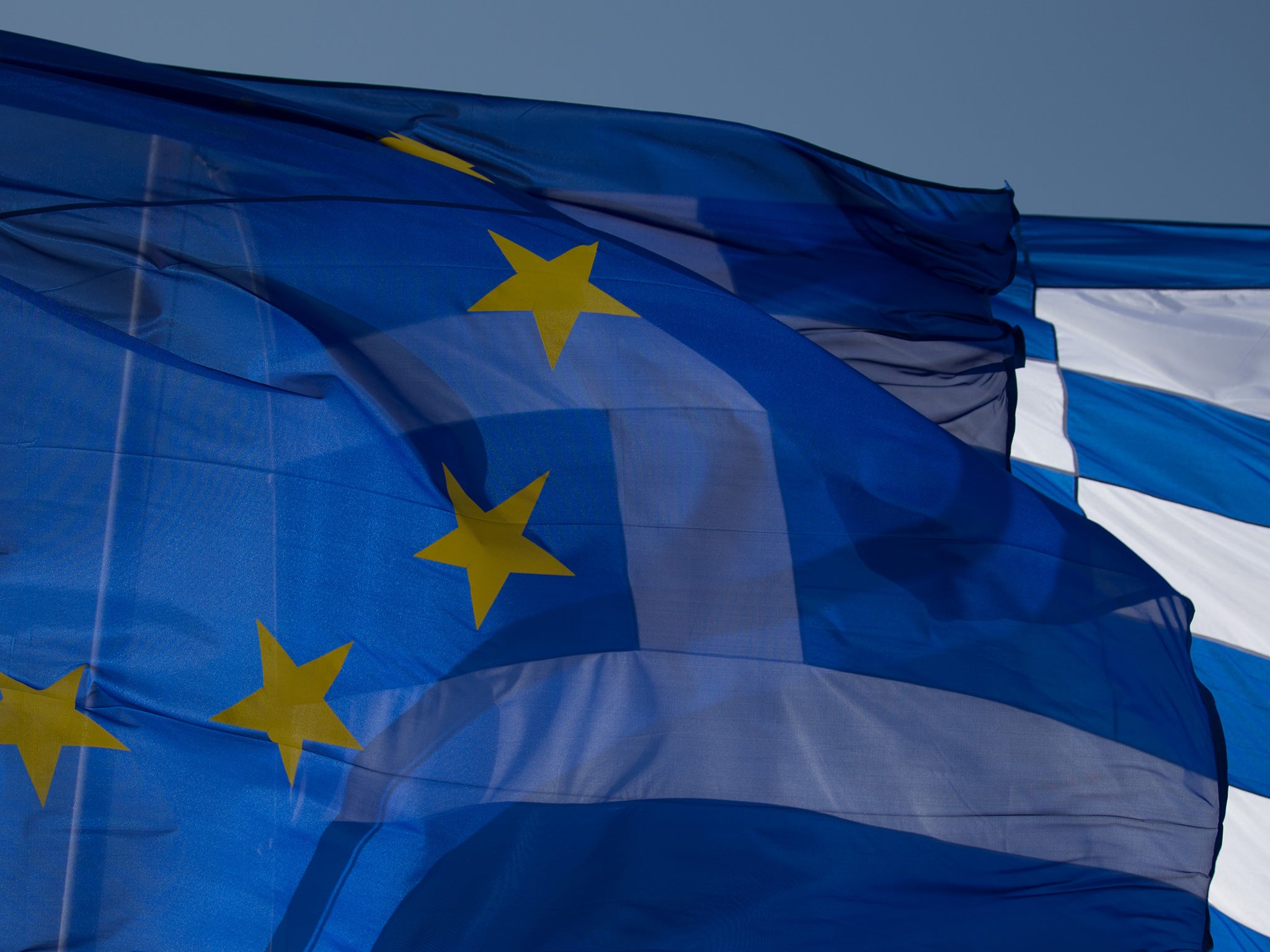Greece's fundamental problem, lack of income, hasn't changed
Das Capital

Greece’s problems have been resolved for somewhere between a few days and four months, with the parties having agreed to possibly agree to a tentative four-month extension of Greece’s existing bailout programme – but only if certain conditions are met.
The Syriza-led government of Alexis Tsipras claims the moral high ground. While the human cost of Greek austerity is unarguable, the party’s argument ignores earlier actions at the heart of current problems. Greece has been on a years-long borrowing binge that has fuelled consumption and government spending.
The European Union, led by the Germans, is also convinced of its moral position. Agreements must be honoured, particularly since two assistance packages have been provided. Germany refuses to acknowledge that its large savings and trade surpluses contributed to the excessive borrowing and spending in Greece.
But lenders were recklessly indifferent to risk in making loans, and the bailouts have largely benefited banks, particularly from Germany and France, with less than 10 per cent of the €240bn (£175bn) going to Greece. Europe also refuses to accept that it allowed Greece to fudge its way into the euro. It cannot countenance that a single currency without full political and financial integration was a bad idea.
In return for conditional funding from existing programmes, the Greek government, in agreeing to the extension, has been forced into an embarrassing somersault in its position. Greece’s Finance Minister, Yanis Varoufakis, sought to portray the deal as mutually beneficial and allowing his country greater freedom of action. The German Finance Minister, Wolfgang Schäuble, was closer to the mark when he gloated that Syriza would have a difficult time explaining the deal to the voters.
Greece’s debt is not the immediate issue. Interest expense, excluding deferred interest, is around 2.6 per cent of gross domestic product. This compares with 5 per cent for Italy and Portugal and 3.3 per cent for Spain. The interest rate on loans from the European Financial Stability Fund, which make up 45 per cent of its debt, is around 1.5 per cent.
Greek debt is generally long-term with an average maturity of more than 16 years. Some bailout loans mature in 2053. Greece has to make around €22.5bn of debt repayments this year.
However, Greece is unlikely ever to be able to pay back its current borrowings. No amount of semantics and pettifoggery can disguise that fact, which has not changed since the start of the crisis. What cannot be paid back will not be paid back.
The real short-term concerns are capital flight, the banking system and Greece’s current cash needs.
Total capital flight is estimated at €25bn since December 2014 (about 8 per cent of GDP). Withdrawal of bank deposits is running at about €2bn a week but accelerating. Greek banks are dependent on funding from the ECB to meet these outflows. The banks also rely on ECB funds to buy the treasury bills needed to finance the government’s day-to-day operations. The withdrawal of ECB assistance (currently near its cap of €65bn) would precipitate a collapse of the banking system.
Greece also needs between €30bn and €50bn this year for normal operations and to repay maturing debt.
This short-term cash requirement and the ECB’s tactical manoeuvring may explain the embarrassing and politically risky backdown on the temporary extension.
The effects of austerity and the shrinkage of the economy are one problem. Greece fundamentally suffers from a lack of revenue.
Tax collection fell in anticipation of a Syriza victory in the January election, which was expected to reduce tax liabilities. The present government has resolved to tackle tax avoidance and improve revenue collection. While desirable, in a world of mobile capital, it is difficult to see this having any short-term impact. The Greek government expects to raise €5.5bn from tax reforms and better enforcement. But it also plans to write off more than €70bn in unpaid penalties against taxpayers.
Greece is internationally uncompetitive. Even in tourism – in which it enjoys clear advantages – it struggles to compete with Turkey and other Mediterranean resort destinations. In part, this is the result of the euro cost base which compares unfavourably with the weak Turkish lira.
Since the start of the Greek crisis, internal devaluation, mainly through lower wages, has reduced costs by about 15 per cent. But this has not resulted in a significant increase in exports. The correction of Greece’s current account deficit reflects the collapse of imports due to a shrinking domestic economy, rather than higher exports.
Outside of tourism and some agricultural produce, Greece simply does not have much to export. Higher energy costs (driven by excise taxes and electricity rates) and, in recent times, a lack of bank credit both reduce competitiveness. Weak global demand is unhelpful to the country’s export prospects. As a result, Greek goods exports are 17 per cent of GDP, much lower than Germany (38 per cent), Portugal (29 per cent) and Malta (37 per cent). Within the eurozone only Cyprus, at 13 per cent, is lower.
Bailout extensions and debt negotiations cannot deal with the underlying problem that Greece has insufficient revenue to meet its spending commitments.
Subscribe to Independent Premium to bookmark this article
Want to bookmark your favourite articles and stories to read or reference later? Start your Independent Premium subscription today.

Join our commenting forum
Join thought-provoking conversations, follow other Independent readers and see their replies